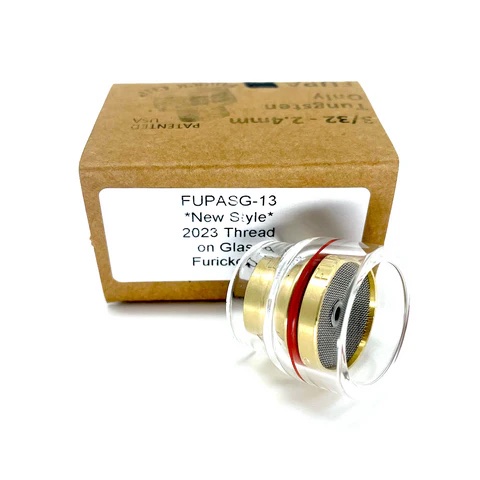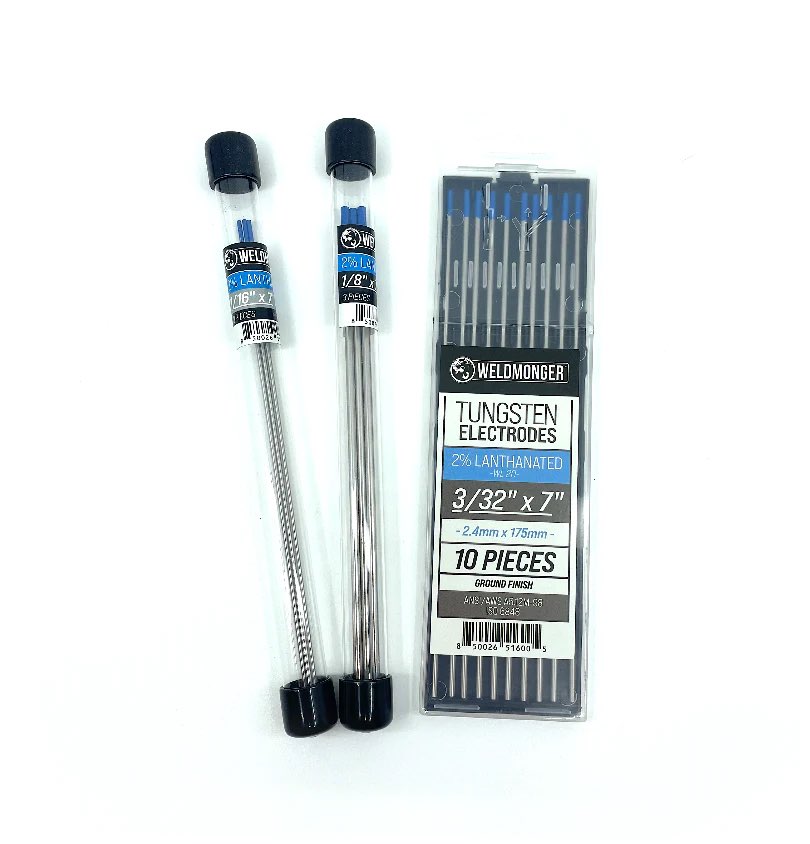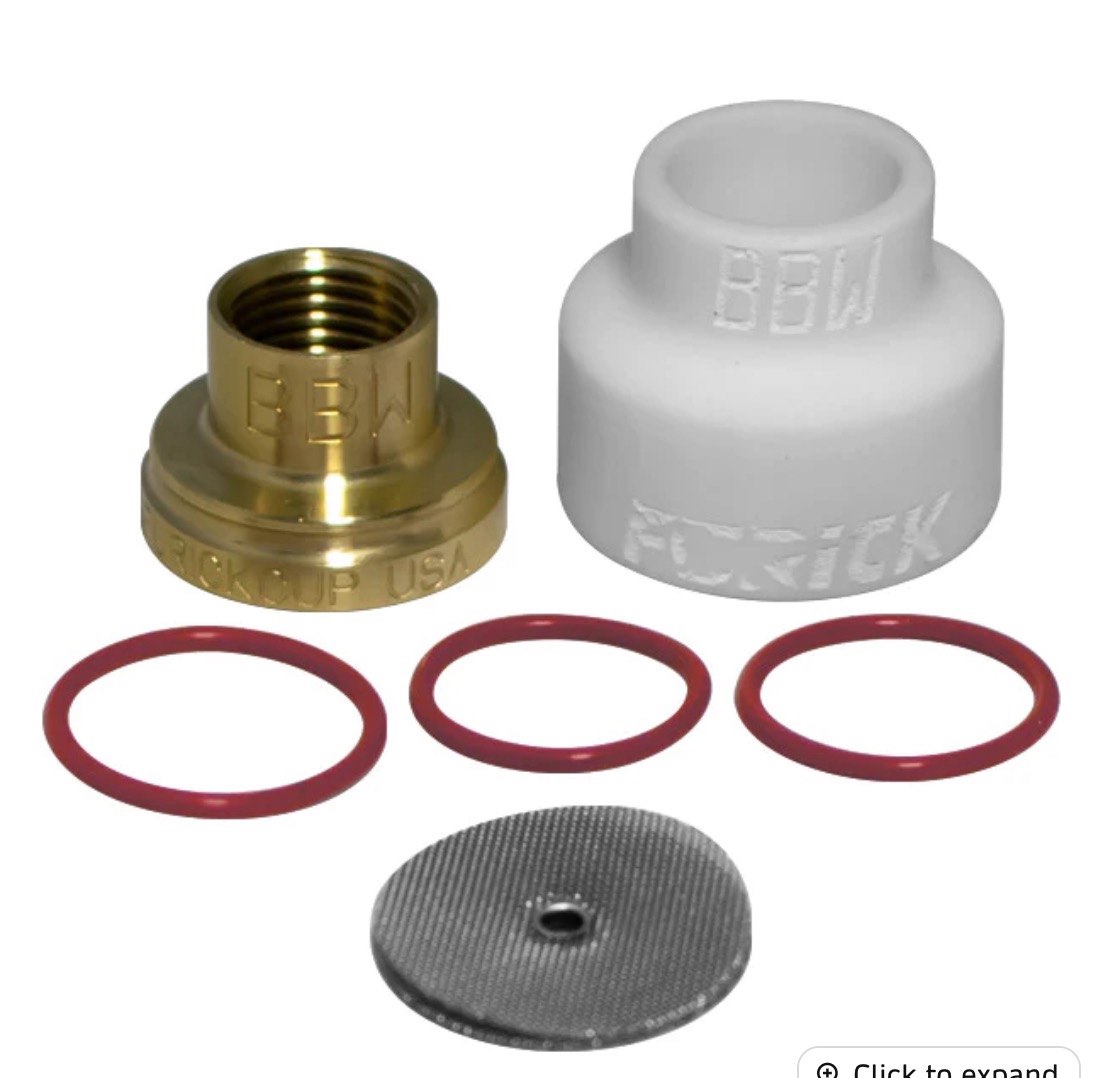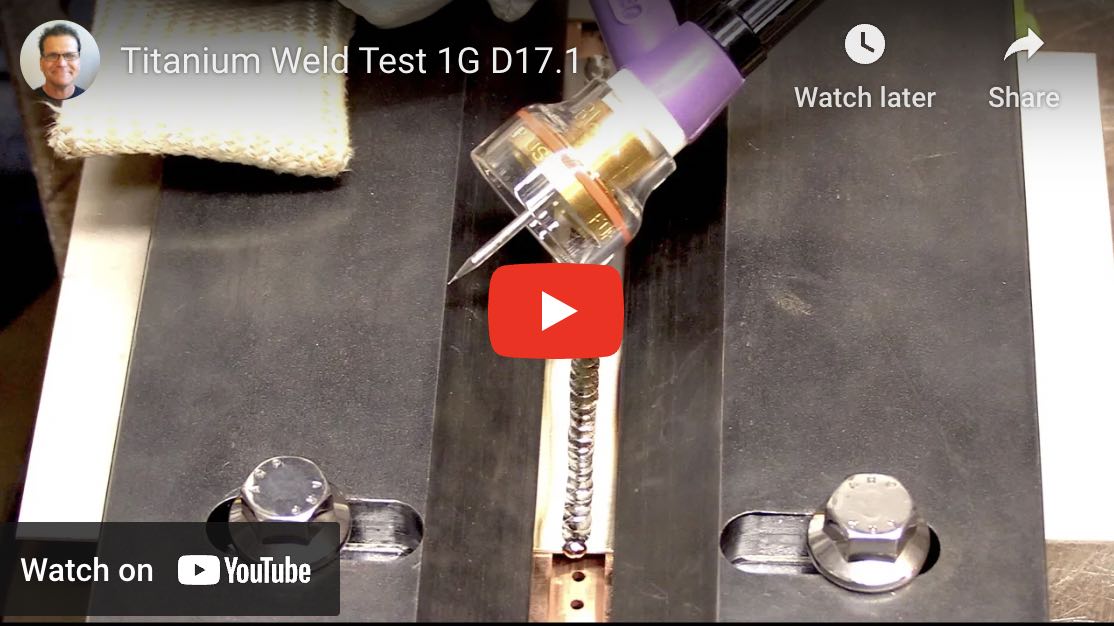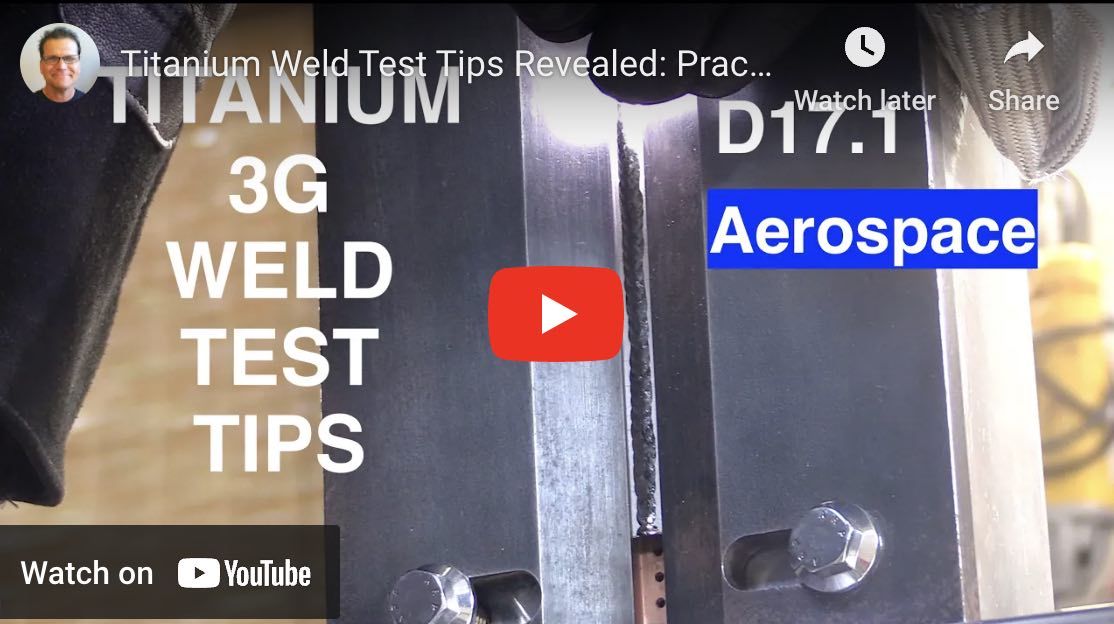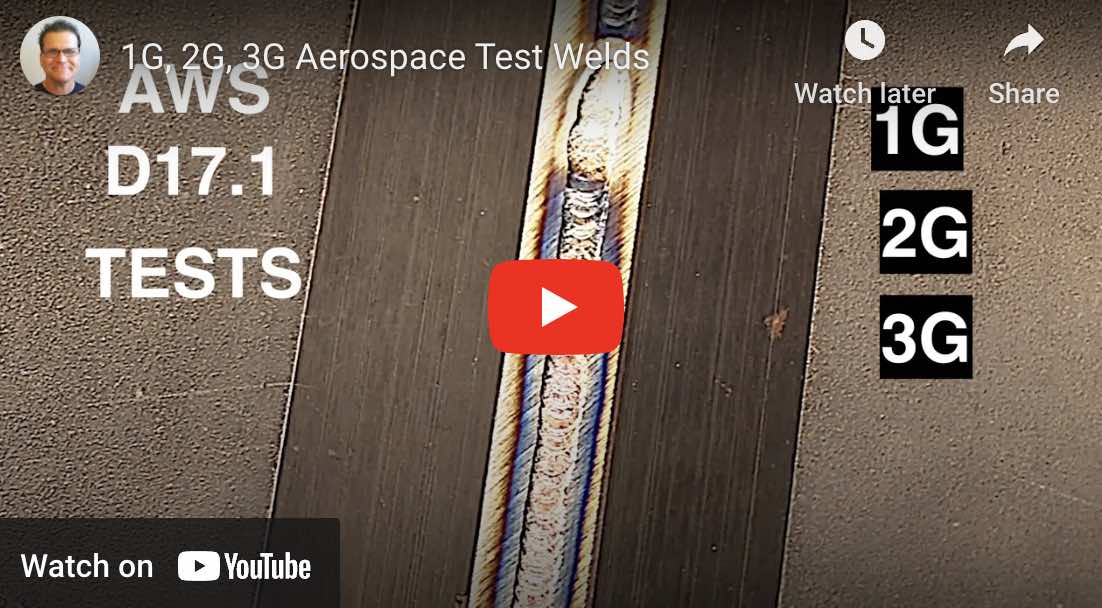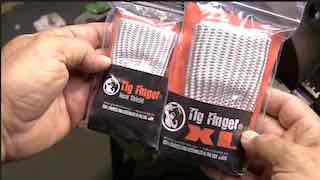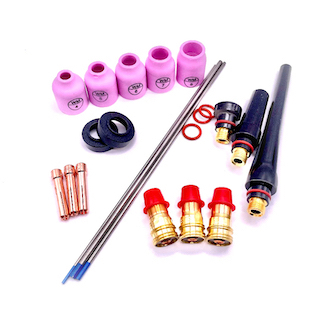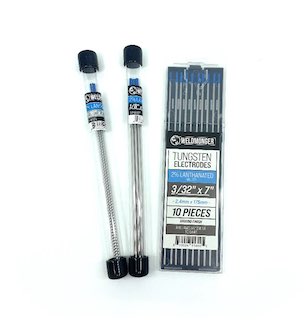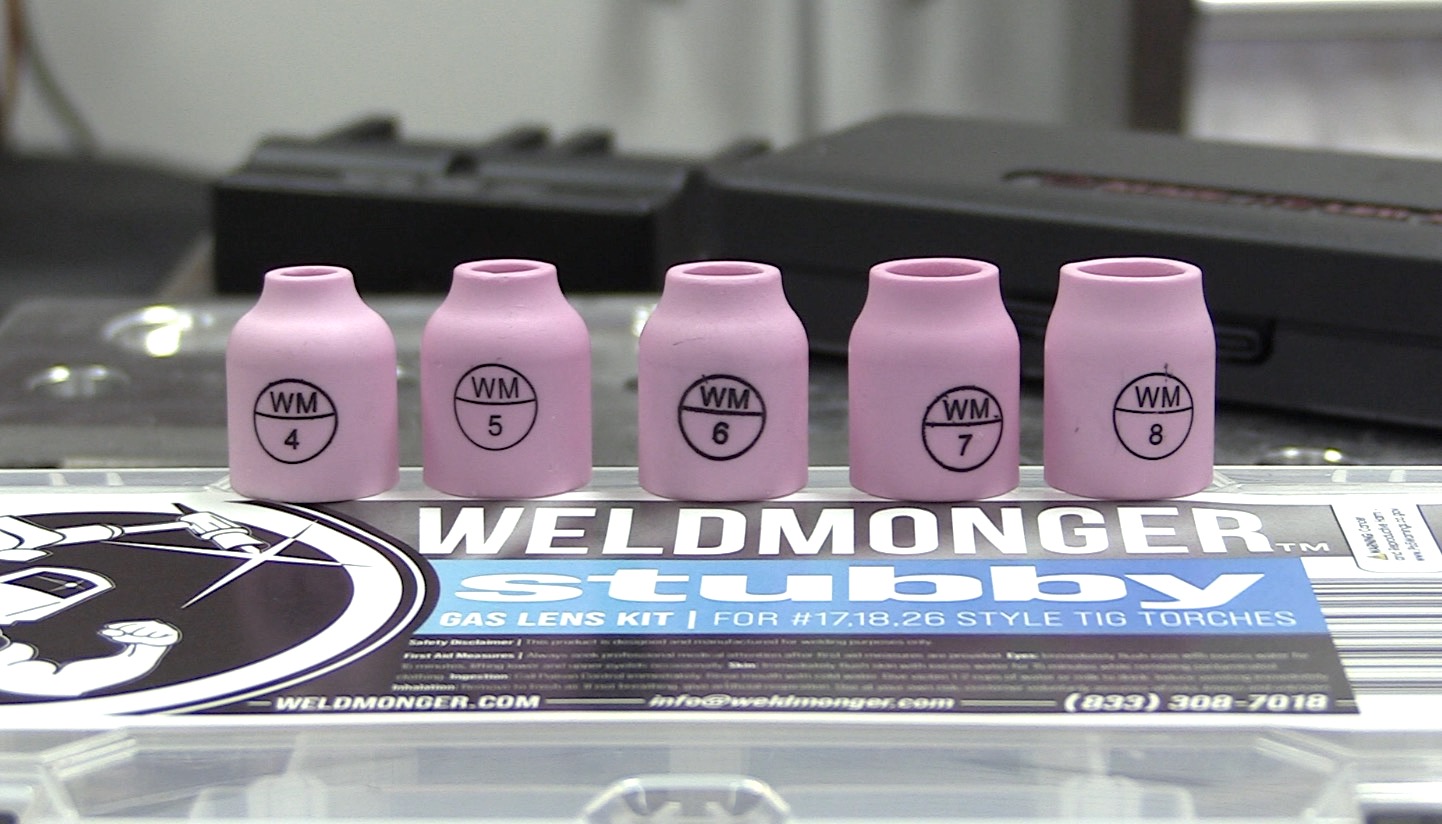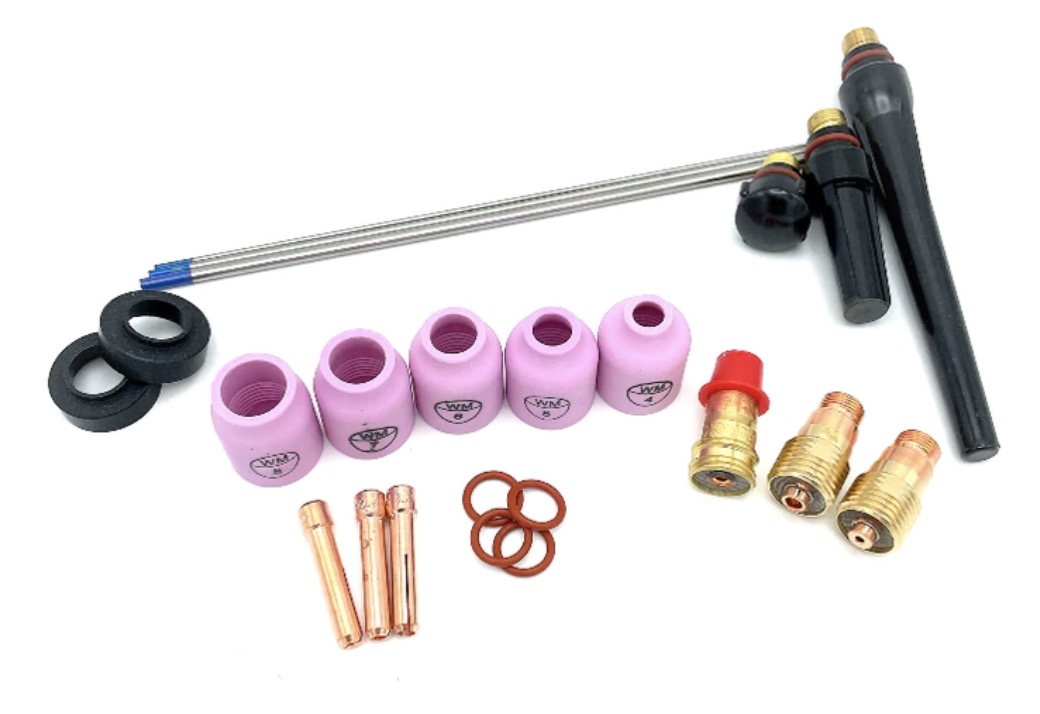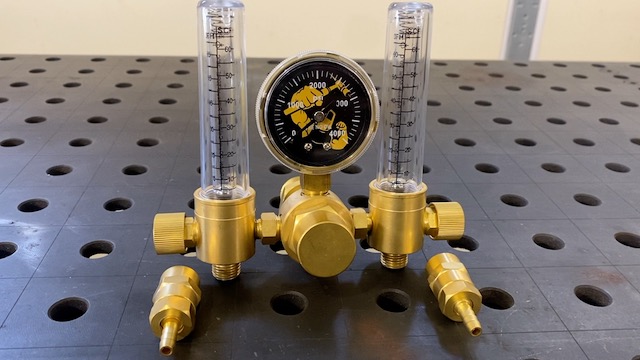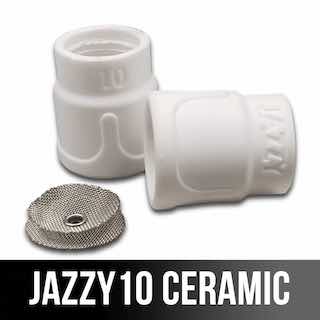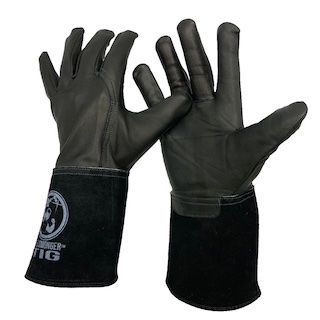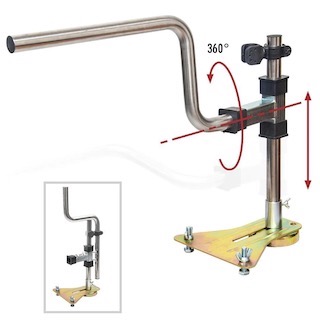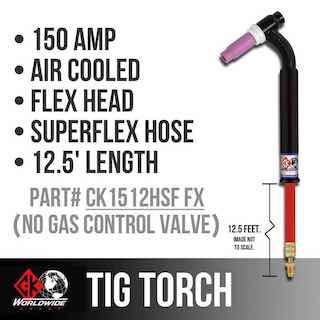D17 Titanium Tee Joint fillet weld test
- HOME
- 3g Titanium Weld Test
- D17 Titanium Tee Joint
The details for this titanium tee joint are as follows...
.038" thick 6AL4V titanium
.045" CP titanium filler metal
42 amps using a primeweld TIG225x
Furick 13 clear cup at 30 cfh argon
Fixture gas set to 20 cfh with a Y splitter to provide coverage to both back side areas
3/32" 2% lanthanated tungsten (typically a 1/16" tungsten would be used but 3/32" works fine too)
What is the best cup for Titanium?
The best tig cup for titanium depends on the scope of the work, whether chill blocks are used, and a few other factors.
In the video on this page, I used a furick sg13 clear cup but there are several other cups that would have worked for this tee joint weld.
The furick BBW for example would be a great choice and there is also a unbreakable version called a "cippy BBW"
The fixture used is aluminum with copper inserts so removes quite a bit of heat making super large cups unecessary.
However, that brings be to a very important point.
Titanium is expensive. And welding specifications like the D17.1 have limits for discoloration.
So a little extra argon required by a larger cup would be a good spend.
1G square groove weld butt joint on titanium
If you can pass a square groove weld as well as a fillet weld in the .040" thickness range, you will be well on your way to being able to certify to D17.1 specs for titanium.
3G titanium weld test D17.1
A 3g welding test on titanium is where the test pieces are placed in the vertical position. The secret lies in getting comfortable.
You have to remember the ABCs of welding...
Always be Comfortable.
It takes some dry runs to figure out how to hold the tig torch steady and how to smoothly glide along to make a consistent weld from start to finish but its worth it.
No point burning up a bunch of titanium test pieces before you figure out how to be comfortable.
In fact, no point welding titanium at all until you can get good at basic carbon steel practice plates on the same joints.
1g, 2g, and 3G practice tests for aerospace welding tests
This video is to help you pass a D17 titanium tee joint welding test.
I went to a Lockheed location for an aerospace welding test back around 1979 and I failed miserably.
I mean I stunk the place up.
That test was on aluminum and stainless in the .040" thickness range.
I had never welded aluminum before so no wonder I failed.
Ironically, around 10 years later after working several nuclear jobs, I was fortunate enough to hire on to a major airline tech ops maintenance division and actually wound up teaching and certifying welders on both aerospace and ground support equipment welding.
I still remember the disappointment in failing that test so if I can help someone pass the test by posting a video on what I have learned since then, I am more than happy to do it.



